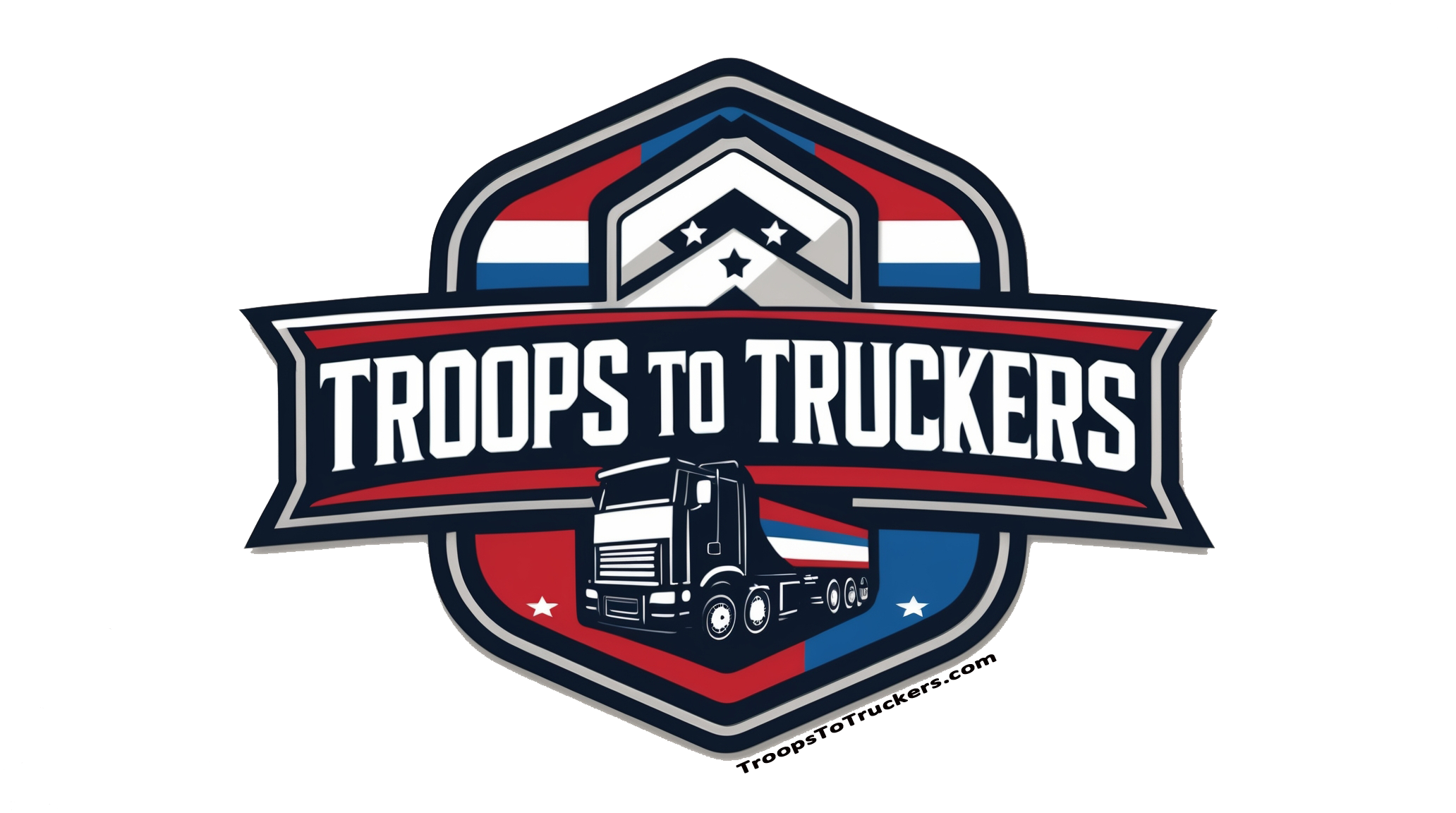 Balancing work and personal life can be a challenge for anyone, but it’s especially difficult for long-haul truck drivers who spend extended periods on the road. While the freedom of the open road is one of the appeals of a trucking career, the long hours, time away from loved ones, and physical demands of the job can take a toll on mental and physical well-being.
Balancing work and personal life can be a challenge for anyone, but it’s especially difficult for long-haul truck drivers who spend extended periods on the road. While the freedom of the open road is one of the appeals of a trucking career, the long hours, time away from loved ones, and physical demands of the job can take a toll on mental and physical well-being.
Achieving a work-life balance on the road requires proactive strategies, self-discipline, and an understanding of how to maximize downtime to stay connected with family and take care of personal needs. This chapter provides guidance on maintaining that delicate balance, so drivers can enjoy a fulfilling career while nurturing their personal lives.
The Unique Challenges of Work-Life Balance in Trucking
For long-haul truck drivers, work-life balance takes on a whole new meaning. Many drivers are away from home for days, sometimes even weeks, at a time. Unlike most nine-to-five jobs, where employees can go home at the end of the day, truckers live where they work—their truck.
This makes it difficult to separate work from personal life. Additionally, the unpredictable nature of the job, with changing schedules, varying delivery times, and potential delays, makes it challenging to plan personal activities or establish routines.
One of the greatest challenges is the impact this lifestyle has on family relationships. Missing important family events, children’s milestones, and time with a spouse or partner can strain even the strongest relationships.
The job can also affect drivers’ health, as the sedentary nature of driving, lack of consistent sleep, and limited food options on the road create physical challenges that contribute to fatigue and stress. Recognizing these unique challenges is the first step toward finding a balance that works for each individual driver.
Strategies for Maintaining Mental Health on the Road
Maintaining mental health is crucial for truck drivers, as stress, loneliness, and fatigue are common challenges in this profession. The following strategies can help drivers manage their mental well-being while on the road:
Stay Connected with Loved Ones
Regular communication with family and friends can provide emotional support and reduce feelings of loneliness. Thanks to technology, staying connected is easier than ever. Video calls, messaging apps, and social media allow drivers to check in with family, catch up on daily events, and feel more connected to home life. Scheduling daily or weekly calls can create a sense of routine and give both the driver and their family something to look forward to.
Practice Mindfulness and Meditation
Mindfulness practices, like meditation or deep breathing exercises, can help drivers manage stress and stay focused on the road. Taking a few minutes each day to clear the mind can reduce anxiety and improve mood. There are numerous mobile apps available, like Headspace or Calm, which offer guided meditation sessions that can be done during breaks or before bedtime.
Set Boundaries
Setting boundaries between work and personal time is essential, even for drivers who live where they work. Drivers can designate certain times of the day, such as meal breaks or evening downtime, to focus solely on personal activities, like reading, watching a movie, or engaging in a hobby. Establishing these boundaries can help drivers feel more balanced and prevent burnout.
Stay Engaged with Hobbies
Engaging in hobbies or activities outside of work can help provide mental stimulation and prevent the feeling of being “stuck” in a work mindset. Many drivers bring books, puzzles, or musical instruments on the road to enjoy during their downtime. For those with creative inclinations, journaling or sketching can also serve as excellent outlets for expression and relaxation.
Seek Support from Other Drivers
The trucking community can be a great source of support. Many drivers understand the unique challenges of the job and can offer advice, encouragement, and companionship. Whether through trucking forums, social media groups, or CB radio conversations, connecting with fellow drivers can help combat loneliness and provide a sense of camaraderie.
Physical Health on the Road
Physical health is just as important as mental health, and maintaining it can be particularly challenging for truck drivers. A sedentary lifestyle, limited access to healthy foods, and irregular sleep schedules can contribute to health issues over time. Here are some strategies to help drivers stay physically healthy on the road:
Prioritize Healthy Eating
While it can be tempting to rely on fast food and convenience store snacks, a poor diet can negatively impact energy levels, mood, and overall health. Drivers should aim to incorporate fruits, vegetables, lean proteins, and whole grains into their meals. Many truck stops and rest areas now offer healthier options, and keeping a small cooler or portable fridge in the truck can make it easier to store nutritious snacks, such as yogurt, fresh fruit, and cut vegetables.
Stay Hydrated
Dehydration can lead to fatigue, headaches, and impaired concentration, which are particularly dangerous for drivers. Keeping a water bottle within reach and making an effort to drink water regularly throughout the day can help prevent these issues. Reducing caffeine intake, especially in the afternoon and evening, can also help drivers maintain steady hydration levels and improve sleep quality.
Exercise Regularly
Finding time and space to exercise can be difficult on the road, but even a few minutes of physical activity each day can make a big difference. Stretching, walking around the truck, or doing bodyweight exercises like push-ups or squats can improve circulation, reduce stiffness, and boost energy levels. Some truck stops have designated exercise areas, and there are also portable exercise equipment options, such as resistance bands or compact dumbbells, that can be easily stored in the truck.
Get Quality Sleep
Sleep is essential for mental and physical health, but irregular schedules and noisy environments can make it difficult for truckers to get enough rest. Establishing a sleep routine, even if it varies day by day, can improve sleep quality. Creating a comfortable sleep environment in the truck, with blackout curtains, earplugs, or a white noise machine, can also help drivers fall asleep faster and enjoy deeper, more restorative sleep.
Finding Joy and Fulfillment on the Road
Work-life balance isn’t just about minimizing stress—it’s also about finding joy and fulfillment in the work itself and in daily life on the road. For drivers who truly enjoy the freedom and adventure of trucking, focusing on the positives of the job can help them feel more balanced and fulfilled.
Appreciate the Journey
Long-haul trucking offers an opportunity to see the country in a way few other jobs allow. Taking a moment to appreciate the changing landscapes, beautiful sunsets, and small towns along the way can bring a sense of wonder to the daily routine. Drivers who find joy in these simple moments are more likely to feel satisfied with their work.
Set Personal Goals
Personal growth doesn’t have to stop while on the road. Drivers can use their downtime to pursue personal goals, whether it’s learning a new skill, taking online courses, or working on a creative project. Setting and achieving small goals can provide a sense of accomplishment and fulfillment that enhances overall life satisfaction.
Celebrate Milestones
Recognizing and celebrating milestones—whether it’s the number of miles driven, safe driving achievements, or personal accomplishments—can boost motivation and create a positive mindset. Sharing these accomplishments with family or friends can also help loved ones stay connected to the driver’s journey and share in their successes.
Staying Connected with Family
Maintaining relationships while spending time on the road is one of the most challenging aspects of work-life balance in trucking. Here are a few ways drivers can nurture their family connections:
Plan Quality Time at Home
When drivers are home, making the most of that time is crucial. Planning family activities, date nights, or simply spending uninterrupted time with loved ones can strengthen relationships and create lasting memories that help sustain the driver while they’re away.
Send Messages and Photos
Sending messages, photos, or short videos while on the road is a simple way to let family members know they’re being thought of. Sharing experiences from the road can help family members feel more involved in the driver’s journey.
Create Traditions
Creating family traditions, like a specific phone call time or a special activity whenever the driver is home, can give both the driver and their loved ones something to look forward to. These small rituals help build a sense of stability and connection despite the time spent apart.
Not Always Easy
Balancing work and personal life on the road is not always easy, but with the right strategies, truck drivers can lead fulfilling lives both on and off the job. Prioritizing mental and physical health, finding joy in the journey, and staying connected with loved ones are essential steps toward achieving harmony. Trucking may be a challenging career, but with balance and self-care, it can also be deeply rewarding.




Comments are closed